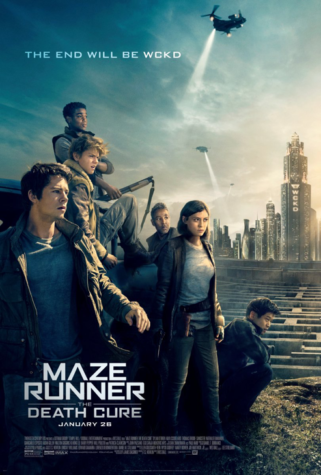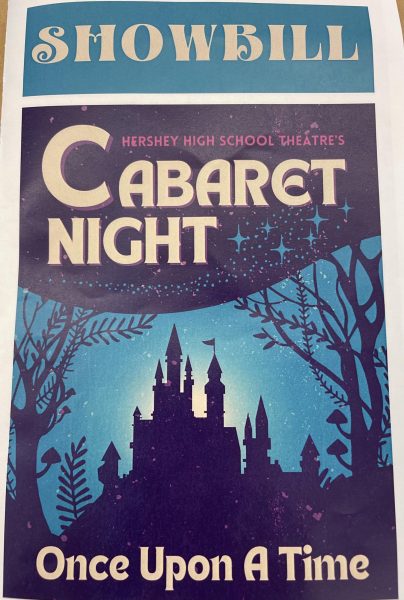Book and movie review: Maze Runner: The Death Cure
March 1, 2018

It’s a common phrase: “The movie is never as good as the book.”
Most people would agree with that. Books provide a more personal, emotional experience that each reader can interpret in a different way, while movies show it as it is and can likely leave out crucial or memorable scenes. However, this doesn’t mean the movie can’t be enjoyable or tear-jerking. Maze Runner: The Death Cure, a PG-13 Sci-Fi film, is a great example of this. This movie differs from the book, but it is captivating in its own way.
The final installment of the Maze Runner series opened in theatres on January 26. Director Wes Ball tells the story of Thomas (Dylan O’Brien) and his friends as they attempt to save everyone from W.C.K.D.’s excruciating experiments. However, old villains and new friends turn the escape into a chaotic mess. Thomas and his friend’s hope for freedom shrinks to the hope for survival as a disastrous, unrelenting disease and the unshakable, violent organization closes in on them. They must weave through the maze of suspicious people and bloodthirsty, infected humans, known as Cranks, to find the exit and discover W.C.K.D.’s true intentions.
James Dashner, author of the Maze Runner series, creates a feeling of dread within each page and ends each chapter with a cliffhanger. The suspense continually rises, and answers only lead to more questions. Suddenly, there are no pages left, and readers are left to ponder which side is truly good.
T.S Nowlin wrote the screenplay for each film in the trilogy, and it’s clear he was heavily inspired by Dashner’s style. Not even five minutes into the movie, filmgoers witness a tense scene that could easily end in death. The fever-pitched anxiety doesn’t cease throughout the movie. The readers will appreciate the influence of Dashner, while outsiders to the book series will also be left on the edge of their seats.
Despite the movie’s similarities with the book, it follows a very common Hollywood formula of “the good guy saves the day, and at the last minute, too.” This theme repeats itself throughout the movie, making portions of it predictable. The movie also heavily foreshadows later events, so the impact is lessened when these scenes finally appear on screen.
The Scorch Trials, the second film in this series, significantly steered away from the novel, and the end was completely different than the book. It was surprising when The Death Cure wrapped back around to the original plot of the book. If you did not read the trilogy, this is may not be an important factor, but it’s worth giving the novels a chance before seeing the movies.
Overall,The Death Cure is a fulfilling, exciting film that many Sci-Fi fans and fans of the book will enjoy.





